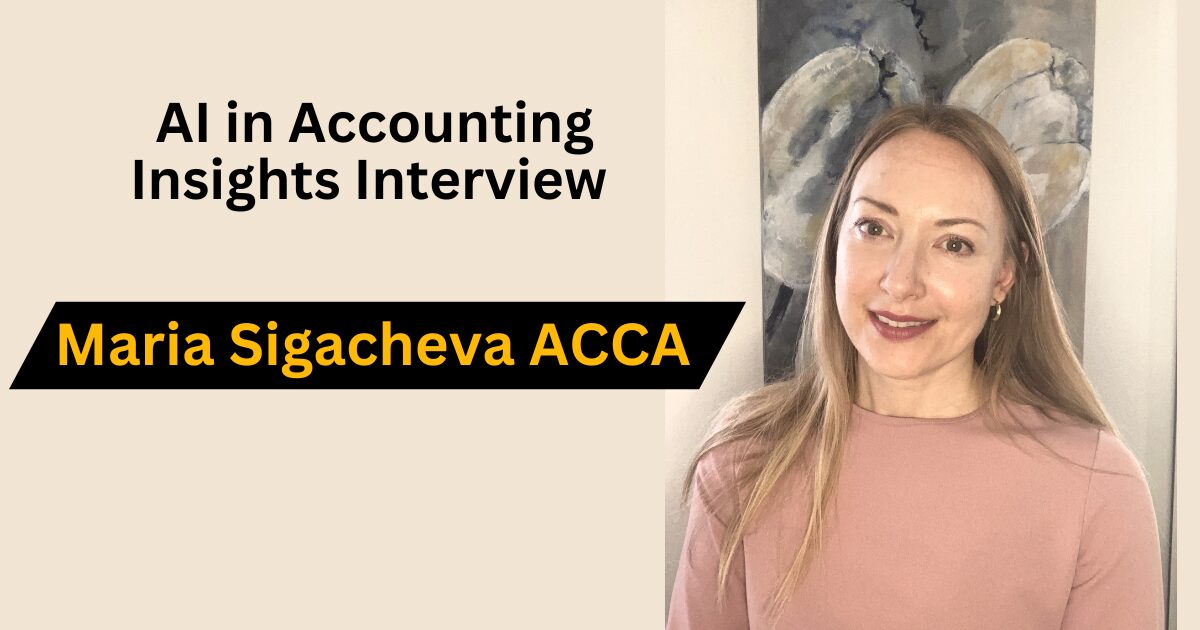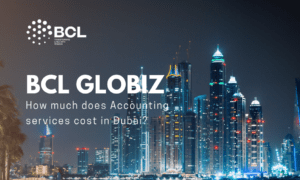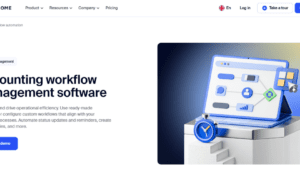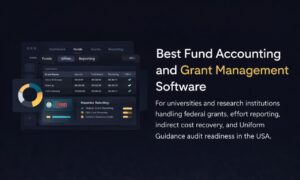There is currently a broad debate taking place around the impact of AI technology in various professions, including the accounting sector. We spoke to Maria Sigacheva about the potential changes in the role of accountants and fast-growing AI technology solutions. Maria is a chartered certified accountant (ACCA), indirect tax manager at the Glencore, and board member at the Civil Mediation Council in the UK.
In what ways will AI impact the role of accountants?
I see a positive change with AI tools being used and gradually trained to perform more complex tasks for many years. If you take OCR tools used to scan a document and extract data using software like Dext or AutoEntry, that significantly helped with the streamlined processing of a large number of invoices and data, reduced manual entry or typos, reduced lost paperwork, and allowed multiple user workflow. Of course, especially in the beginning, there were errors in the identification of the right data and missing fields, but the OCR technology has now been elevated to the next level because of AI technology. AI is not simply programmed to perform certain tasks by algorithms; it continuously learns, adapts, and is meant to create a thinking process based on the scenario that if A then B, if C then D, mimicking human logic.
The main impact on the tasks that are currently done is to assist with the fast and reliable assessment of large data, which is especially relevant in audit ‒ learning about the behaviour of suppliers and customers so as to build a better-predicted cash flow prognosis or warning about fraud whilst checking for any suspicious transactions.
On the other hand, like in the early days of the OCR, AI technology needs guidance from the right source. In my view, for this to be a success, it needs checks and controls by qualified accountants. This is the main change in the future, contributing to machine learning and ensuring the quality of data used.
Do you think accountancy firms (and employees) are ready for the wider use of AI?
At this time, the integration of AI solutions in the accounting or finance sector is driven by larger companies. Those projects can be costly for smaller businesses, but with time I think there will be off-the-shelf solutions, suitable for everyone from the self-employed to the limited company. According to recent research by Thomson Reuters (2023), about 5% are using AI solutions in tax, 6%-9% are planning this, 30% are considering it, and 60% have no plans to implement.
However, saying that, in the UK alone there are a total of 3,170 AI companies generating £10.6bn in AI-related revenues. Among these companies, 86% operate in a narrow sector covering financial services, and 3% in legal, computer software, biotechnology, and insurance sectors.
How do you see AI transforming the accounting industry in the next 5-10 years?
I would hope for more accuracy and better judgement over cases in the next few years. However, to get quality data out, you need to put quality data in; and in order to get better performance, you need to have qualified professionals to train the AI, especially in the beginning to create a solid base.
What support do accountants have with AI technology transition?
I am a member of the Association of Chartered Certified Accountants (ACCA), and I have to say our organisation has been a true leader in this regard. The ACCA hosts webinars and workshops for its members and has published AI guides and research papers, which are available publicly on its website. I feel we are being supported by our membership organisation and I am proud to be part of it. I regularly take part in the ACCA events to ensure inclusion for all members, especially by providing my support during the digital transformation. The information on AI technology should be transparent and easily understood by everyone in my field: this includes understanding the benefits and any potential risks of using these tools.
Can we trust AI technology in accounting?
As with any upcoming technology, time is needed for the in-depth analysis of benefits, risks and consequent government regulation. There is an implementation of the UK’s AI Regulatory Principles already in place as initial guidance. This helps to elevate trust in some way. On the other hand, the trust in professions is clearly not there yet. Research by Thomson Reuters has highlighted the main concerns as being accuracy, privacy, confidentiality and security; these fields are crucial in the accounting field.
The risks concerning security issues are at 70% according to tax professionals. Despite criticism, I believe we could try integrating parts of the jobs to automate and remove manual entry through the enhanced scanning of the documents, adding advanced features rectification or alerts about errors in the documents, and creating reports to load into other accounting software. The technology has advanced so far from a simple optical character recognition and we should make the best use of it.



































